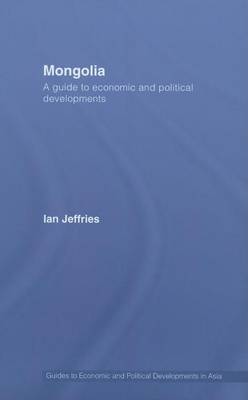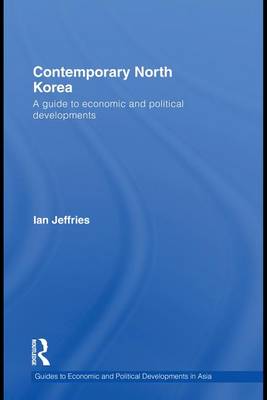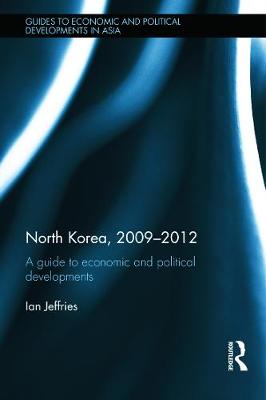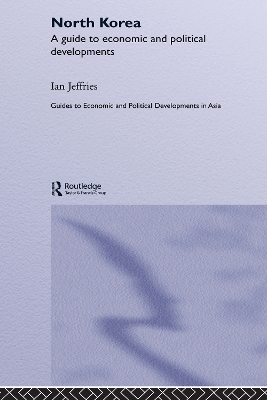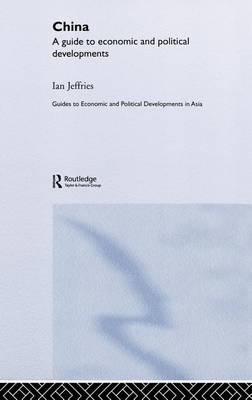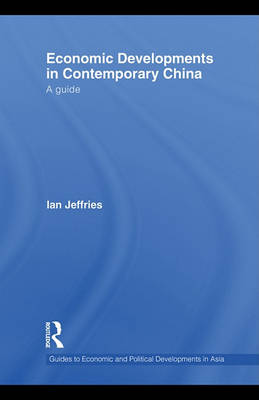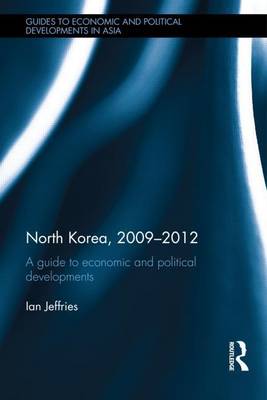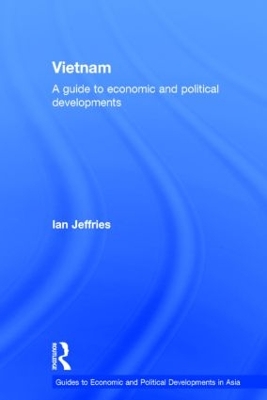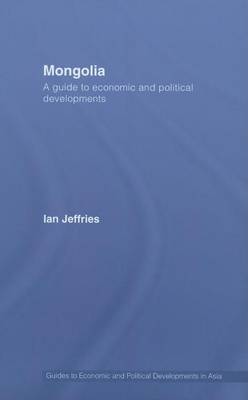Guides to Economic and Political Developments in Asia
2 primary works • 17 total works
Book 4
Book 5
This book provides full details of contemporary economic and political developments in North Korea since late 2005, continuing the overview of developments which were covered in the author's North Korea: A Guide to Economic and Political Developments (Routledge 2006). Key topics covered include: the succession; family visits; human rights; nuclear capability and intentions; recent initiatives in international relations, and relations with the United States; and adverse economic and social conditions.
Overall, the book demonstrates the degree to which North Korea's international position is changing. This book provides a comprehensive overview of the current political and economic situation in North Korea today, and is an important resource for all those interested in this country's recent development.
This book provides a comprehensive overview of political developments in Russia since late 2000, following on from where the author's previous publication, The New Russia, left off. It covers all aspects of politics including the following: the highly centralized nature of power in Russia; central government and presidential elections; regional government and developments in the republics, including unrest in Chechnya and the other Caucasian republics; and human rights. Taking a chronological approach, it shows how politics overall has changed over the period, including how the relationship between Prime Minister (formerly President) Vladimir Putin and President Dmitri Medvedev has worked out.
The book continues - and adds to - the overview of developments in the author's The New Russia (2002), and is the companion volume to Economic Developments in Contemporary Russia (2011) - both published by Routledge.
Contemporary Vietnam: A Guide to Economic and Political Developments
by Ian Jeffries
North Korea continues to be a country of great concern internationally, where future developments are uncertain, especially as a result of the succession to the leadership of Kim Jong-un following the death of Kim Jong-il. It is also a country which is relatively unknown and relatively little studied. This book provides a comprehensive, detailed survey of economic and political developments in the last few years. As such it provides many insights into the current trends which are likely to shape the country’s future direction.
Developments are arranged chronologically by sector, and there is a generous introduction and summary background information to set developments in context
A lot of interest in North Korea due to speculation about the countries nuclear weapon capabilities and being part of Bush's axis of evil
This book provides a comprehensive overview of Russia's difficult economic transition from a command economy since the early 1990s. It covers the financial crisis of August 1998 and the global financial crisis a decade later. Key subjects covered include economic transition, privatization and liberalization; changes in land ownership and agriculture; energy; foreign direct investment; economic stabilization; and economic performance. Russia is well endowed with raw materials, especially oil and natural gas; this book argues that in some ways this has not helped Russia's attempts to become a more diversified and high-tech economy.
Overall, the book demonstrates how much the Russian economy has changed in the period. It continues - and adds to - the overview of developments in the author's The New Russia (2002), and is the companion volume to Political Developments in Contemporary Russia (2011) - both published by Routledge.
There is currently widespread interest in the Chinese economy, due to its huge and rapid growth, and the consequent impact on world business and the world economy. At the same time, there are concerns about China's political system, China's human rights record and the degree to which reform - the development of 'socialism with Chinese characteristics' - represent real liberalization.
Providing an overview of earlier events in order to set the context in which economic and political development have taken place, the book traces economic and political growth in China from the early 1990s to the present. Covering Hong Kong, Macao, Tibet and Taiwan, the book discusses China's relations, including international trade with its neighbours and with the international community more widely. Other key topics covered include the growth of the market, the reform of state owned enterprises, human rights and SARS.
China's role in global affairs today continues to rise. This book provides an authoritative, comprehensive and detailed overview of contemporary economic developments in China. Key topics include agriculture; the market gradually replacing central planning; the global financial crisis; the reform of state-owned industrial enterprises; the non-state sectors; the 'open-door' policy (including the WTO, exchange rate policy, and inward and outward direct foreign investment); and China's economic performance in general.
The book continues - and adds to - the overview of developments up to May 2006 which were covered in the author's China: A Guide to Economic and Political Developments (2006), and is the companion volume to Political Developments in Contemporary China: A Guide (2010) - both published by Routledge.
North Korea, 2009-2012: A Guide to Economic and Political Developments
by Ian Jeffries
Winning the Vietnam War proved easier than winning the peace. Since 1975, the reunited country has faced the problem of how a poorer, planned economy in which state ownership and control could successfully absorb a more advanced, capitalist economy. In addition, the collapse of communism and the end of the Cold War heralded a new age in Vietnam’s internal and external relations.
Vietnam traces developments since the end of the Vietnam War, including recent economic reforms, the politics of the Communist Party, and the re-establishment of relations with the United States. It gives a comprehensive and informative overview of the current political and economic situation in Vietnam today.
China's role in global events today cannot be overestimated.
This book provides a comprehensive and detailed overview of contemporary political developments in China. Key topics covered include: China's international relations with its neighbours and with the international community more widely; demographic developments; Taiwan; Macao and Hong Kong, Tibet, Uighurs; human rights, health issues (including bird flu); food contamination and defective goods; and a chronology of political developments, congresses and Central Committee sessions since May 2006; the earthquake of 12 May 2008 and the 2008 Olympic Games.
The book continues - and adds to - the overview of developments up to May 2006 which were covered in the author's China: A Guide to Economic and Political Developments (2006), and is the companion volume to Economic Developments in Contemporary China: A Guide (2010) - both published by Routledge.
